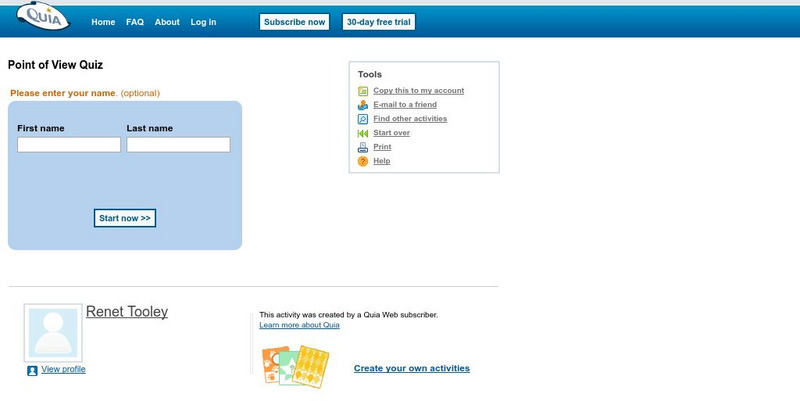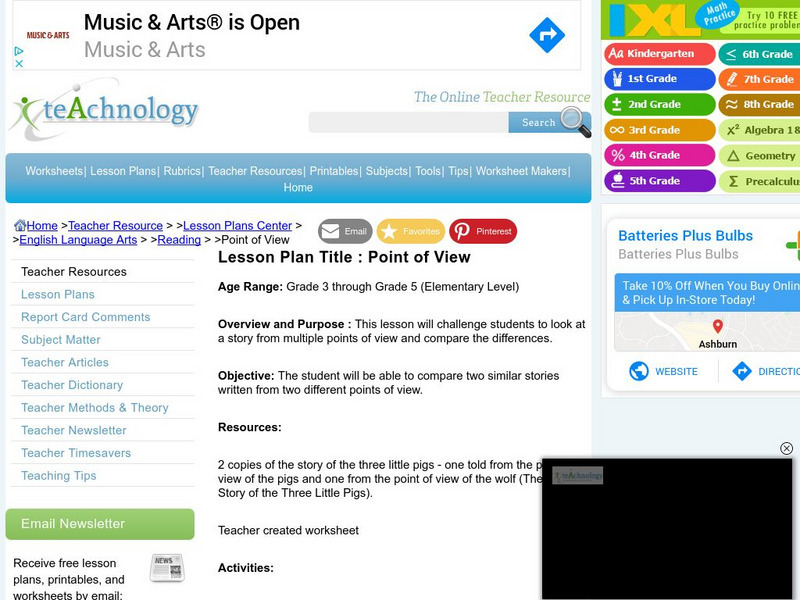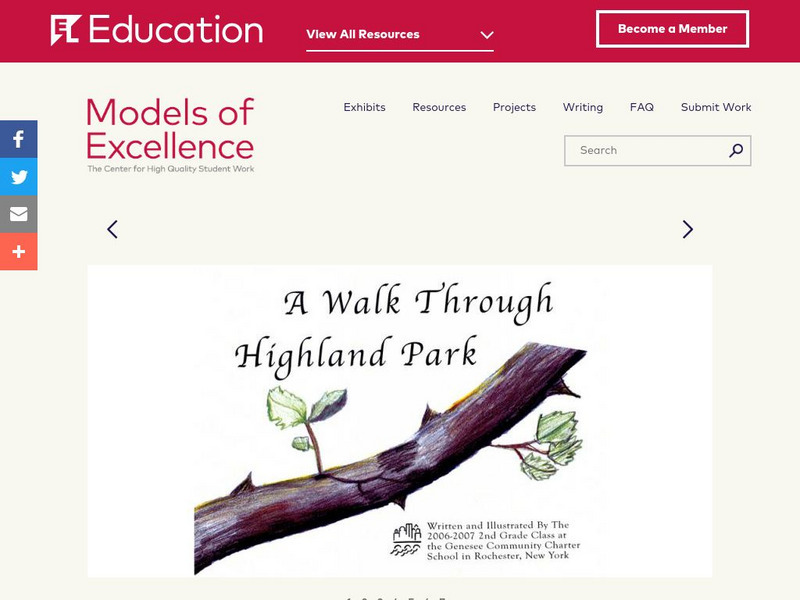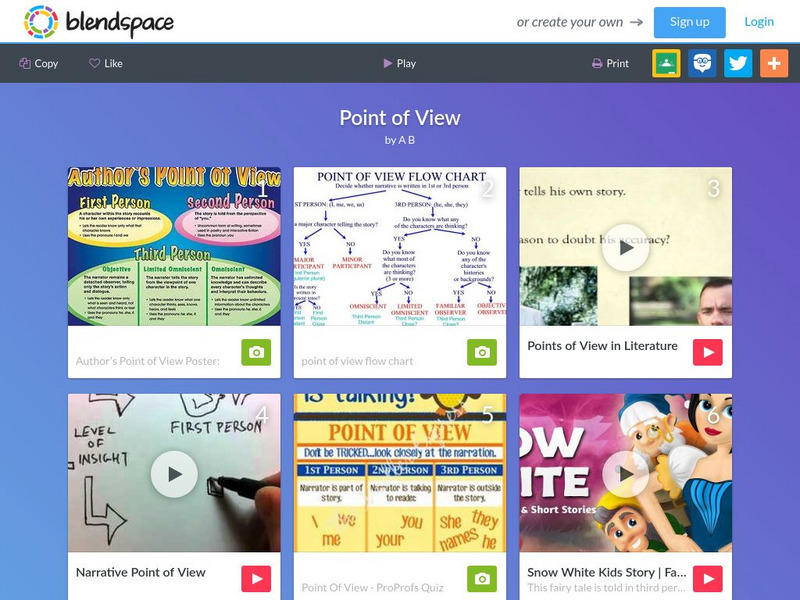Hi, what do you want to do?
Ted Nellen
Cyber English (By Ted Nellen): Negative Capability
This is a glossary entry for the term "Negative Capability" including the definition and a link to an example.
Writing Fix
Writing Fix: Suggestions for Writing Memoirs: Memories of a Pet or Object
This lesson plan, inspired by Gary Paulsen's My Life in Dog Years, helps students write memoirs or narratives about their lives through the eyes of a pet, a favorite pair of jeans, or their shoes. Students choose one item that is very...
ArtLex
Art Lex: Composition
This online dictionary of art terms from Artlex is a valuable tool. The composition page explains how the term is used in the world of art. There are related links and works of art to explore.
Blackdog Media
Classic Reader: "When Jack and Jill Took a Hand" by Lucy Maud Montgomery
The amusing story by Lucy Maud Montgomery "When Jack and Jill Took a Hand" is written from two different points of view. Read the full text on this site.
PBS
Pbs Lesson Plan (Affluenza): Be an Adbuster
Through an integrated approach from PBS, students examine the messages conveyed in print advertisements. Using parody, students are asked to alter the message of an ad to present a different or opposite point of view. Lesson may be more...
Other
Point of View
A personal site by Nita Leland that discusses point of view representation in creating artwork. It is a quick read - only one page, but the information provided will get you on your way!
Other
Ccss Literacy E Handbook: Informational Text: Compare Perspectives
A short explanation of the difference between a firsthand account and a secondhand account.
Quia
Quia: Point of View Jeopardy
Practice identifying first and third person point of view in this Jeopardy style learning game.
Quia
Quia: Point of View Quiz
Read each statement and determine whether it shows first or third person point of view in this ten-question quiz.
Quia
Quia: Author's Purpose Quiz
Read each selection and determine the author's purpose or point of view in this ten-question quiz.
Quia
Quia: Point of View Quiz
Read each passage and determine if it is written in first, second, or third person point of view in this five question quiz.
Quia
Quia: Rags to Riches Author's Tone and Point of View
Answer questions about author's purpose, tone, and point of view in this Rags to Riches style game.
Quia
Quia: Point of View Millionaire Game
Read a short text and then determine whether it is written in first person, third person, third person limited, or third person omniscient point of view in this Rags to Riches style game.
Quia
Quia: Point of View Millionaire Game
Read a short text and then determine whether it is written in first person, third person, third person limited, or third person omniscient point of view in this Rags to Riches style game.
Houghton Mifflin Harcourt
Holt, Rinehart and Winston: Elements of Literature: Analyzing Point of View
A resource for students in analyzing the point of view for a given piece of literature. Provides a short worksheet and important questions.
Houghton Mifflin Harcourt
Holt, Rinehart and Winston: Elements of Literature: The Short Story [Pdf]
A short group of exercises for students concerning the elements of a short story. Allows students to examine the major story elements, then apply those elements to a given piece of literature.
Quia
Quia: Point of View Quiz
This interactive activity assesses students' understanding of point of view. Students will read five brief narrative passages; after reading each passage, students will identify the point of view.
Writing Fix
Writing Fix: Revising for a Different Audience [Pdf]
An activity where students are asked to write for a specific audience. CCSS.ELA-Literacy.WHST.6-8.5 Develop and strengthen writing
Teachnology
Teachnology: Lesson Plan: Point of View
In this instructional activity, students compare/contrast two versions of "The Three Little Pigs" including the traditional from the pigs' point of view and "The True Story of the Three Little Pigs" by Jon Scieszka and Lane Smith version...
Fun Trivia
Fun Trivia: Short Story Elements Trivia Quiz
This site shares a short story elements trivia game. Examples of short story elements are applied to high school classic literature.
EL Education
El Education: A Walk Through Highland Park
This book was created by 2nd grade students in Rochester, New York as part of a three-month learning expedition on animals and habitats called, "A Walk Through Highland Park. Students spent time in their local park doing fieldwork making...
TES Global
Blendspace: Interpreting Literature Terms
A fourteen-part learning module on literary terms including links to text, videos, word lists and images on literary terms such as plot, setting, character, point of view, style, theme, and more.
TES Global
Blendspace: Ri/rl 5.6 Point of View
Work through twenty-two links to pictures, charts, and videos to learn more about point of view in both informational and literary texts.
TES Global
Blendspace: Point of View
A learning module with six links to videos and charts that demonstrate first, second, third limited, and third omniscient points of view.






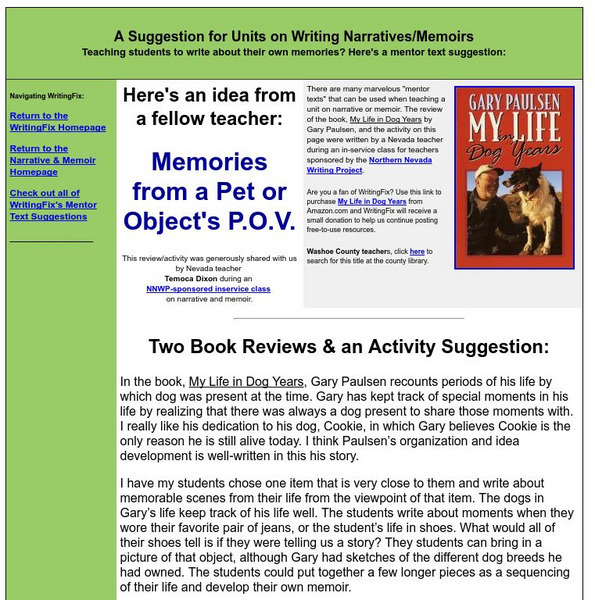


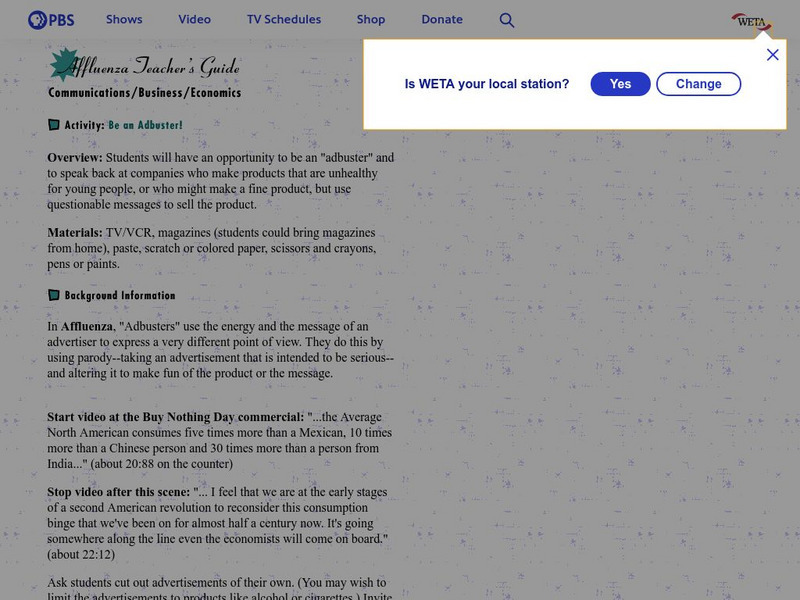
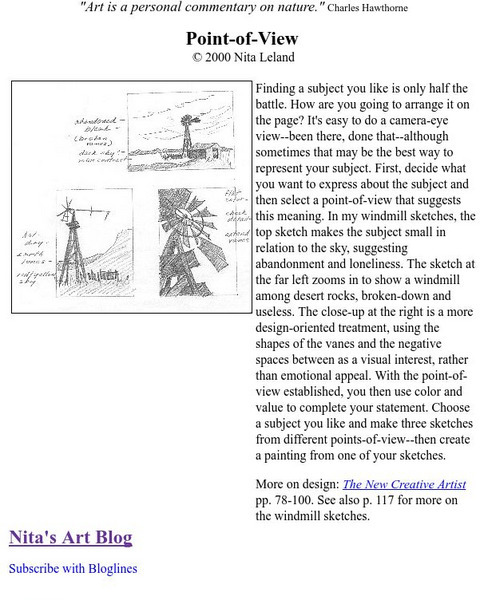



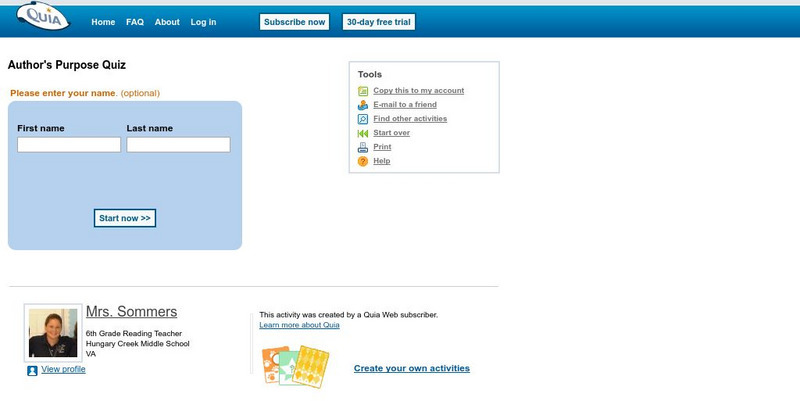
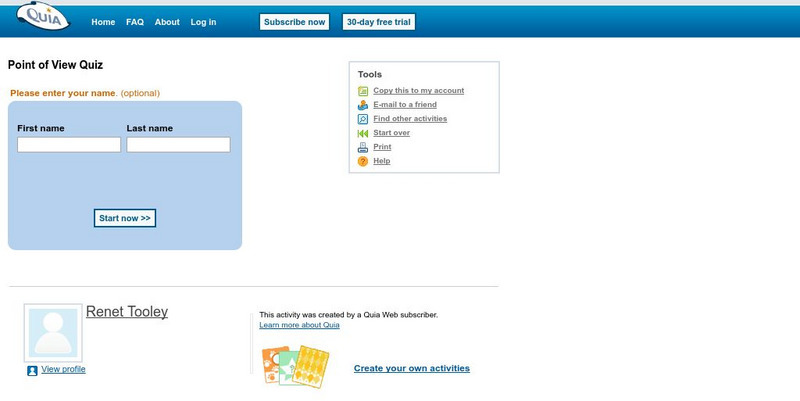




![Holt, Rinehart and Winston: Elements of Literature: The Short Story [Pdf] Unit Plan Holt, Rinehart and Winston: Elements of Literature: The Short Story [Pdf] Unit Plan](http://lessonplanet.com/content/resources/thumbnails/410057/large/bwluav9tywdpy2symdiwmduymc03ode4lte1bw5wdgouanbn.jpg?1589985144)
